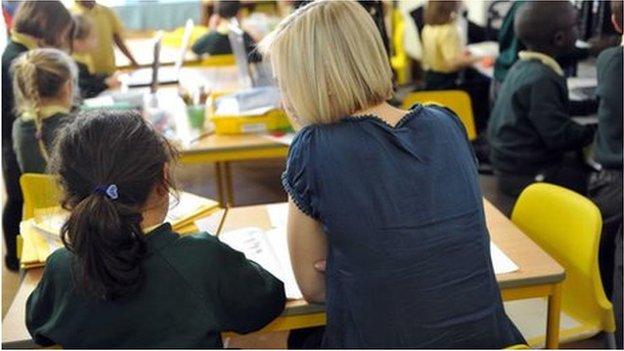Foreign language learning 'declining rapidly' in Wales
- Published
- comments

There is little diversity beyond French teaching
Modern foreign language learning in secondary schools in Wales is "declining rapidly" according to a major study.
Budget cuts, overloaded school timetables and Welsh government assessment systems were blamed.
The number of pupils taking French and German at GCSE has halved since 2002.
The education minister has now announced "a radical and new approach" including schools which will be centres of excellence.
The report by the British Council and CfBT Education Trust found "no sense of dynamism" and little prospect of improvement.
In 2005, 12,826 children studied a language at GCSE, but by 2014 the number had fallen by a third to 8,601.
Nearly two-thirds of secondary schools took part in the survey.
Although there has been a decline in the study of foreign languages in other parts of the UK, England and Scotland have both introduced policies to increase the provision.
Since September 2014 every child in a primary school in England has to learn a modern or ancient language.
Scotland has recently announced increased funding, external to ensure that all pupils not only start learning a foreign language by the first year of primary school, but also begin to learn a third language later in primary education.

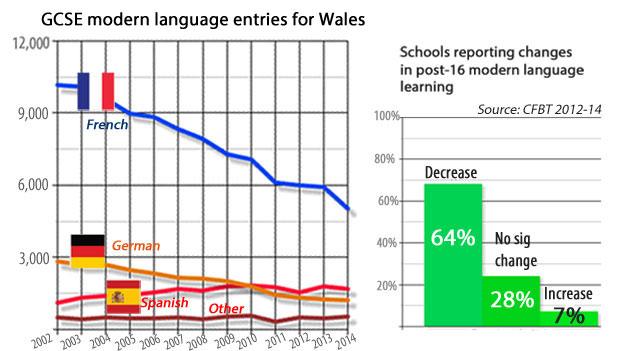
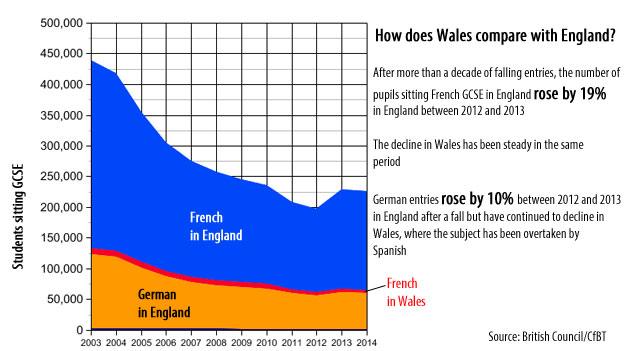
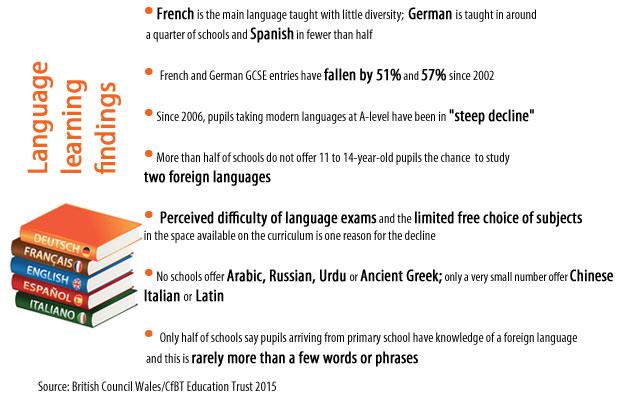
The findings came from responses from 136 schools

According to the report: "Languages other than English and Welsh are not part of the primary curriculum in Wales, making Wales, along with Northern Ireland, the countries with the shortest period of compulsory foreign language learning in Europe."
"Wales is very likely to fall even further behind in future, with serious implications for the comparability of Welsh and English GCSEs in foreign language subjects."
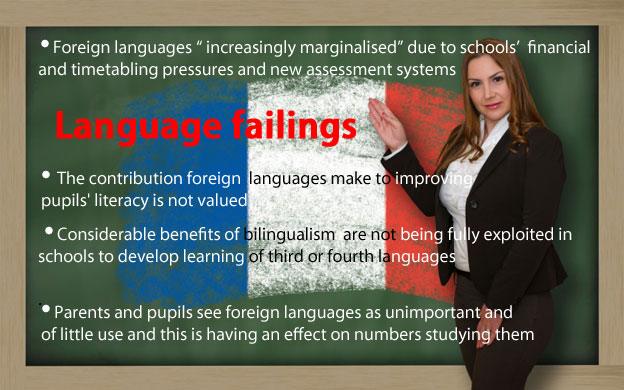
The report's conclusions as to why modern languages are declining in schools
In the first three years of secondary school in Wales, all pupils have to study a foreign language. But according to the report "many pupils are receiving only a minimal or fragmented experience of language learning".
The report finds "little prospect of improvement or of the decline being stemmed" as things stand.

SCHOOL OPTS FOR SPANISH
Pupils at Abertillery Comprehensive can only learn Spanish - but more are now taking up the option
Pupils at Abertillery Comprehensive have the option of learning Spanish as the only modern language on offer, with French and German no longer available.
They were seen as difficult, while Spanish was a subject pupils could "latch onto" and similarities with learning Welsh was another factor.
Melanie Gill, head of languages, said there was still much to do.
"Pupils seem to link languages with working abroad. They don't seem to link it with local companies, that they can get jobs here too.
"We're having to work much harder to make it more fun, desirable - they don't see languages as being as important as the core subjects and I don't think that schools do generally either with literacy, numeracy and science seen as more important over subjects like languages."

LANGUAGE SKILLS 'PARAMOUNT' BUT LACKING LOCALLY
Sarah Grain, from Bedwas-based firm Eriez, calls the lack of language skills in the UK 'soul destroying'
Electro magnetics firm Eriez, external, based at Bedwas, Caerphilly county, has a small sales team but has to recruit workers who are UK-based from around Europe because they have the necessary language skills.
Sarah Grain, exports sales manager, said it was "soul destroying" that they were unable to hire home-grown staff because the schools were not producing pupils qualified in modern languages.
She added: "The only place we can found those skills are young people who have come to the UK from other European countries and have multiple language skills."

Education Minister Huw Lewis said language skills were important for jobs and Welsh business and Wales could not "just carry on with business as usual".
His new approach includes:
Global Futures - a plan to improve and promote modern foreign languages
four secondary schools across Wales being appointed regional centres of excellence
the centres linking up with language institutes and working with local schools to drive up teaching standards
experts from schools, universities, Estyn, British Council and language institutes ensuring the plan is fully implemented
looking to work with the BBC and Open University "to harness new digital technologies to improve language learning for pupils and teachers".
Mr Lewis said: "This problem is not unique to Wales, but it is one I am determined to tackle.
"I want to ensure that more and more of our young people actively choose to study a modern foreign language as part of their school education, and develop the skills they need to thrive in a modern global economy."
- Published16 January 2015

- Published26 March 2015
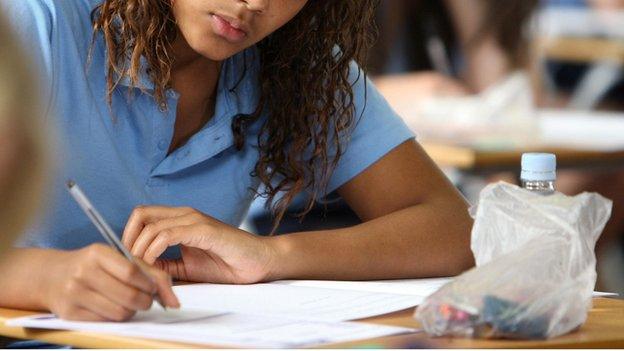
- Published18 March 2015

- Published20 March 2015
